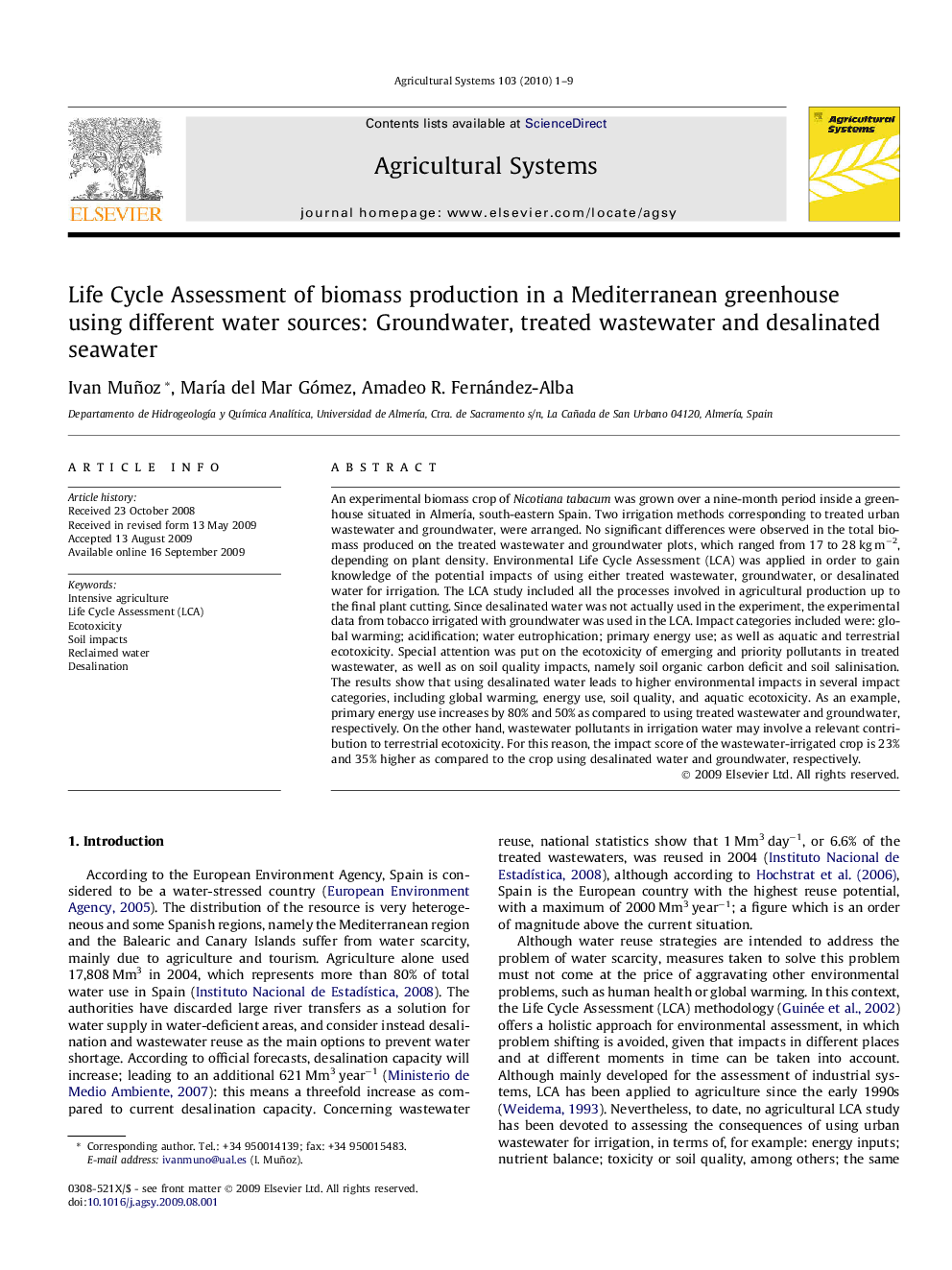| کد مقاله | کد نشریه | سال انتشار | مقاله انگلیسی | نسخه تمام متن |
|---|---|---|---|---|
| 4491647 | 1317870 | 2010 | 9 صفحه PDF | دانلود رایگان |

An experimental biomass crop of Nicotiana tabacum was grown over a nine-month period inside a greenhouse situated in Almería, south-eastern Spain. Two irrigation methods corresponding to treated urban wastewater and groundwater, were arranged. No significant differences were observed in the total biomass produced on the treated wastewater and groundwater plots, which ranged from 17 to 28 kg m−2, depending on plant density. Environmental Life Cycle Assessment (LCA) was applied in order to gain knowledge of the potential impacts of using either treated wastewater, groundwater, or desalinated water for irrigation. The LCA study included all the processes involved in agricultural production up to the final plant cutting. Since desalinated water was not actually used in the experiment, the experimental data from tobacco irrigated with groundwater was used in the LCA. Impact categories included were: global warming; acidification; water eutrophication; primary energy use; as well as aquatic and terrestrial ecotoxicity. Special attention was put on the ecotoxicity of emerging and priority pollutants in treated wastewater, as well as on soil quality impacts, namely soil organic carbon deficit and soil salinisation. The results show that using desalinated water leads to higher environmental impacts in several impact categories, including global warming, energy use, soil quality, and aquatic ecotoxicity. As an example, primary energy use increases by 80% and 50% as compared to using treated wastewater and groundwater, respectively. On the other hand, wastewater pollutants in irrigation water may involve a relevant contribution to terrestrial ecotoxicity. For this reason, the impact score of the wastewater-irrigated crop is 23% and 35% higher as compared to the crop using desalinated water and groundwater, respectively.
Journal: Agricultural Systems - Volume 103, Issue 1, January 2010, Pages 1–9